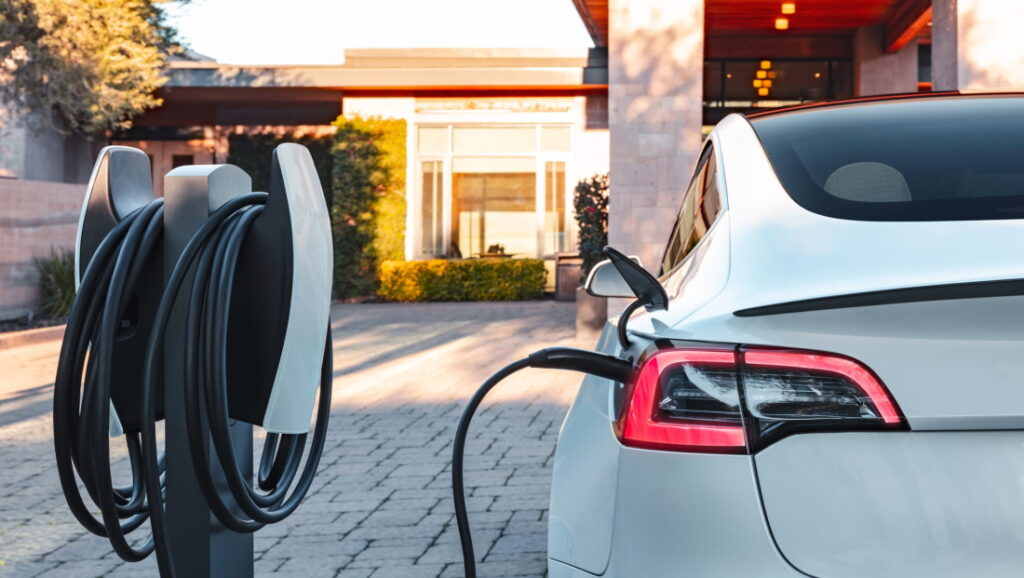
The bill, Promoting Electrification, which provides for improved tax incentives for the acquisition of electric vehicles and the installation of charging infrastructure, was submitted to the Parliament for adoption, following the completion of the public consultation on 1 July. During the process, a total of 334 comments were submitted by a number of stakeholders and citizens. This demonstrates the particular interest in the successful penetration of electromobility in the road transport mix, which is a central pillar for the transition to green, clean mobility.
The aim of the Ministry of Environment and Energy was to take advantage of the consultation while improving specific provisions of the bill. The next step is the parliamentary process that is expected to be completed the week after, with the passage of the bill in the Plenary of the Parliament.
I move electrically
Then the Joint Ministerial Decision of the Ministries of Environment and Energy, Finance and Infrastructure and Transport will be issued, which will pave the way for the activation of the action "I move electrically", with a budget of EUR 100 million. and valid until 31 December 2021. Through it, individuals, taxi companies and companies will be subsidized with an ecological bonus, as has already been officially announced, for the purchase / lease of electric cars, two-wheelers and bicycles. It is noted that during the public consultation many interesting comments were submitted regarding the action "I move electrically" and were taken into account in its final design.
As the Minister of Environment and Energy Kostis Hatzidakis points out in a statement, "with the first comprehensive and integrated bill for the promotion of electromobility, we are laying the foundations for the transition to green transport. This will have clear benefits for improving the quality of life of the citizen, for the accessibility of cities and for the protection of public health from dangerous pollutant emissions that burden the environmental footprint of road transport."
The bill provides for a series of incentives (ecological bonus, tax exemptions, etc.) which lead to a weighted average reduction of 25% in the price of an electric car and 40% of an electric bicycle.
This benefit is added to the significantly lower cost of use as the electricity consumption of a small category vehicle corresponds to about 16 kilowatt-hours/100 km, or about 2.7 euros (with the current household tariff) compared to about 9 euros which is the cost for a corresponding gasoline car.
Promoting electromobility - Key changes following the public consultation
Following the incorporation of the submitted proposals, the most important improvements made to the draft law compared to the text submitted for public consultation are the following:
- In the direction of reducing pollutants, the environmental footprint of transport and the protection of public health, an environmental fee of 3,000 euros (compared to 4,000 initially proposed) is imposed on imported used vehicles of Euro 4 technology (cars of 10-12 years and more). An environmental fee of 1,000 euros is also introduced on imported used vehicles of Euro 5A technology (cars of 8 years and over).
- This rationalises the level of the environmental charge and treats more strictly old used Euro 5A vehicles, which through the 'Dieselgate' scandal and the falsification of pollutant measurements on thousands of diesel vehicles have prompted the European Commission to order a preliminary investigation and a number of Member States to impose heavy fines and ban them in urban centres.
- The revenues generated will be channelled through the Special Purpose Account to develop and finance actions that will support the transition to zero- and low-emission mobility. Provision remains made for a ban on imports of even older and highly polluting vehicles (Euro 1, 2 and 3 technology).
- Pure electric vehicles falling under category L, i.e. vehicles classified as two- or three-wheeled vehicles as well as electric bicycles, benefit from the tax incentive of deducting expenditure increased by 50% like other vehicles. Thus, for an electric two-wheeler, its value will be calculated increased by 50%, improving the tax result of the company that benefits from the incentive.
- Electric vehicles worth up to 50,000 euros (Retail Price Before Tax) will be excluded from the presumption of subsistence, while for electric vehicles worth more than 50,000 euros, a presumption of subsistence of 4,000 euros is set.
- For the installation of publicly accessible charging infrastructure powered exclusively by RES, an even higher depreciation rate of fixed assets and an expense discount (70% compared to 50% initially foreseen) is introduced. This makes it more attractive to install charging infrastructure that will run on energy from alternative sources. thus making charging 100% green.
- The procedure for allowing the free parking of electric vehicles in the controlled parking areas of cities is clarified, with a view to serving the owners of such vehicles as easily and quickly as possible.
- The framework of responsibilities of the entities supervising the electromobility market is precisely defined.
- It is planned to prepare an Electric Vehicle Charging Plan by the small municipalities of the country, in order to achieve the maximum geographical coverage with charging infrastructure in the coming years.
- The process of installing private charging points in all categories of buildings and in particular in apartment buildings is further simplified.
The bill also introduces incentives to attract investment in lignite regions of Western Macedonia and Megalopolis for production units for chargers, components, batteries, etc., a mandatory quota for the purchase of electric vehicles by the State is imposed (with a target of 25% of new vehicles from August 2021 to be electric) and establishes the framework that will allow for the rapid deployment of charging networks across the country.




